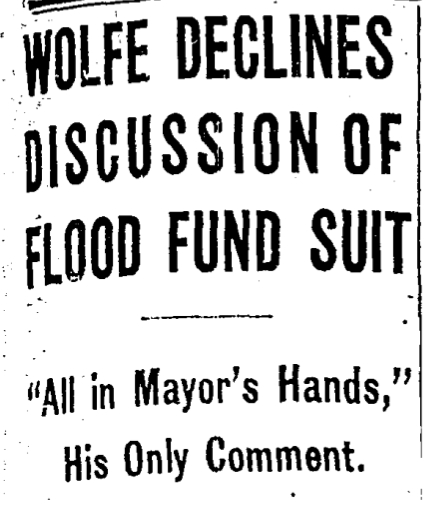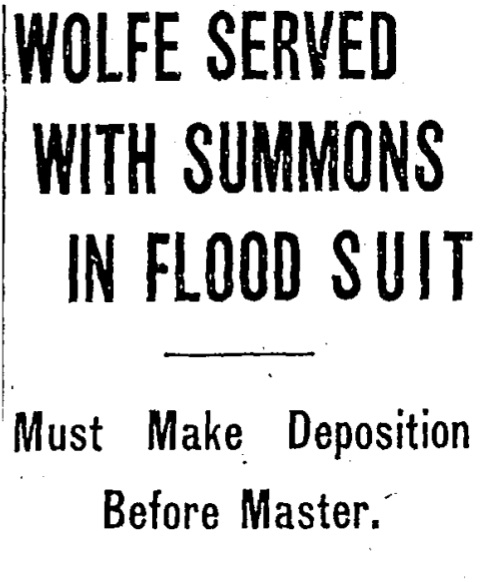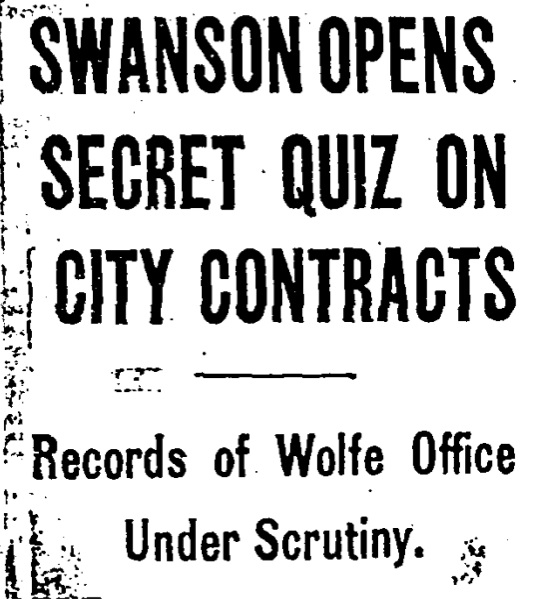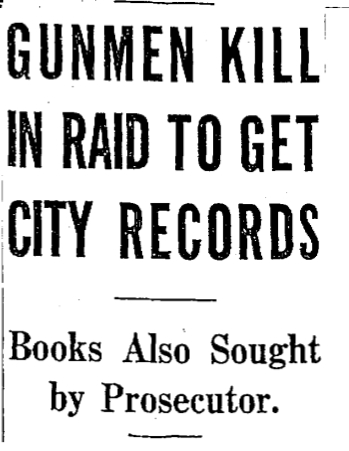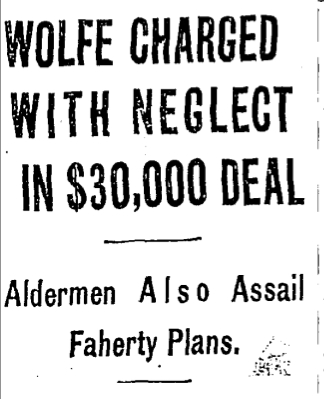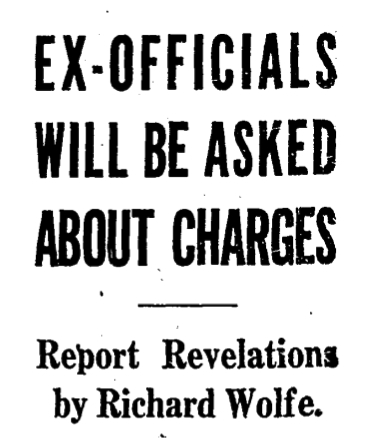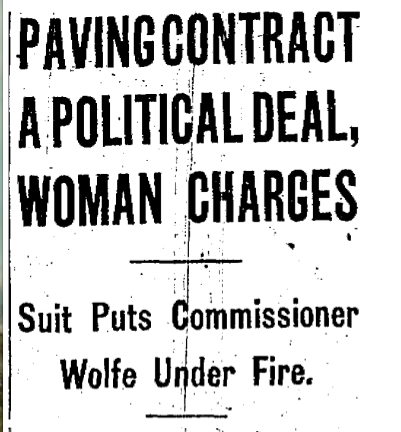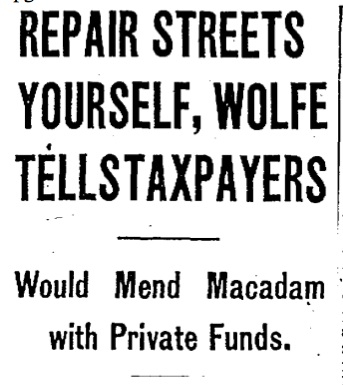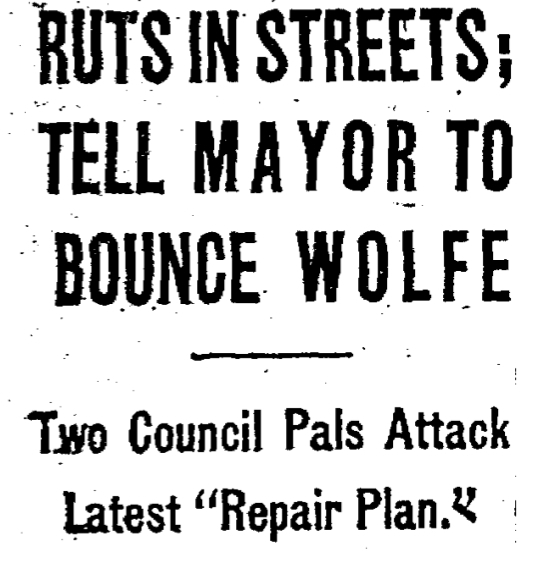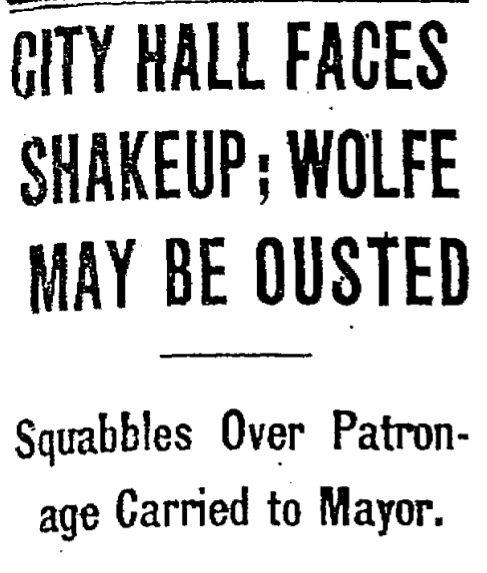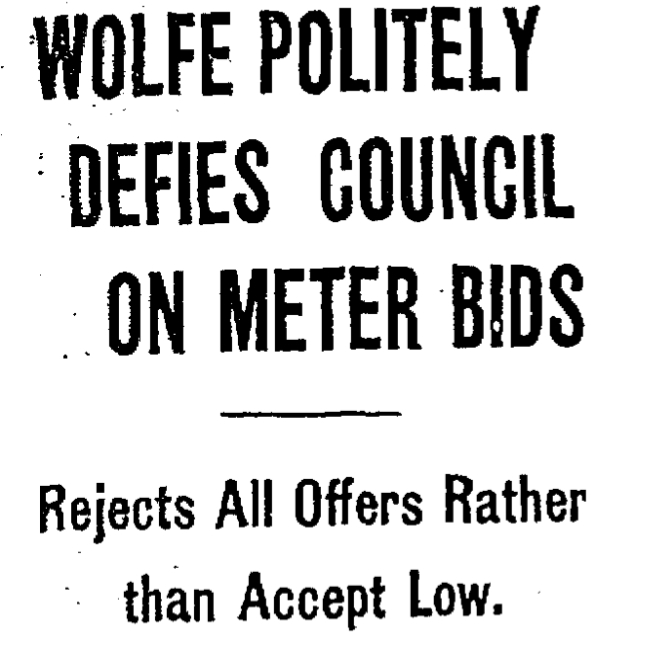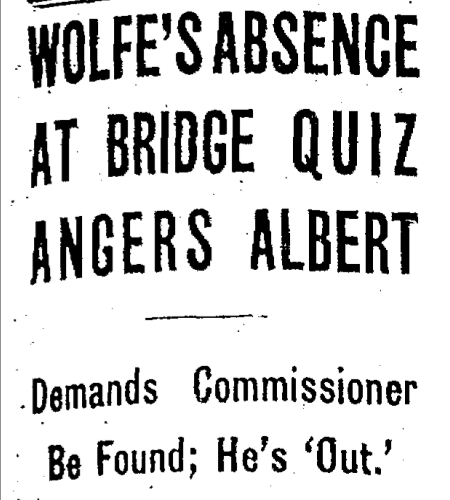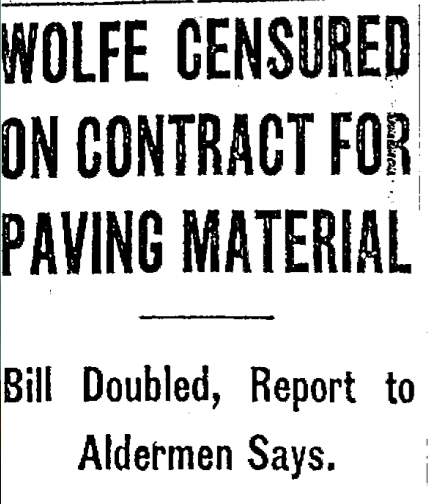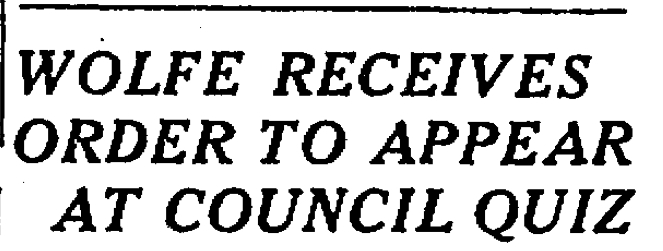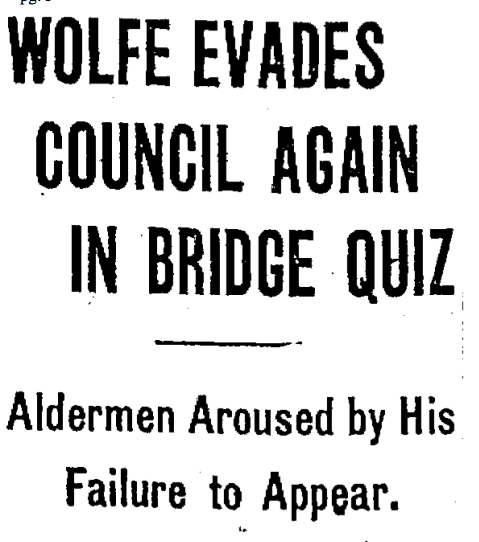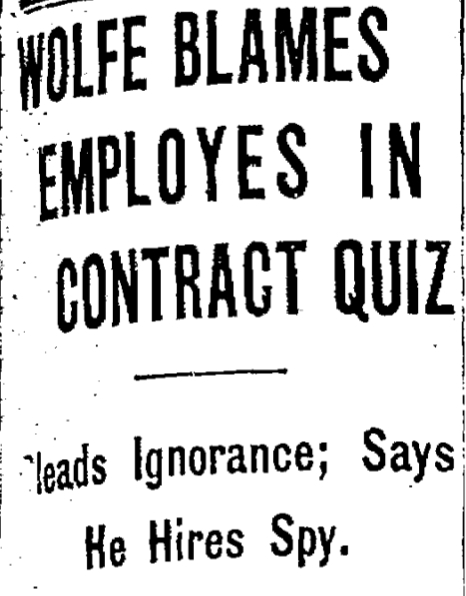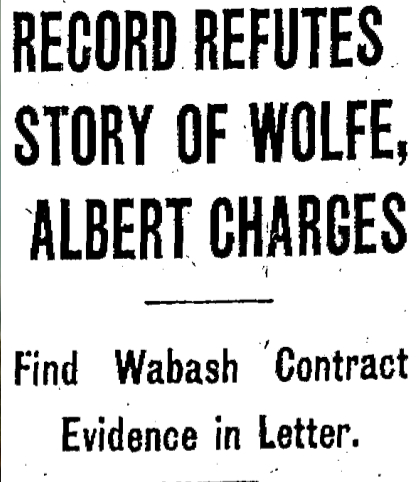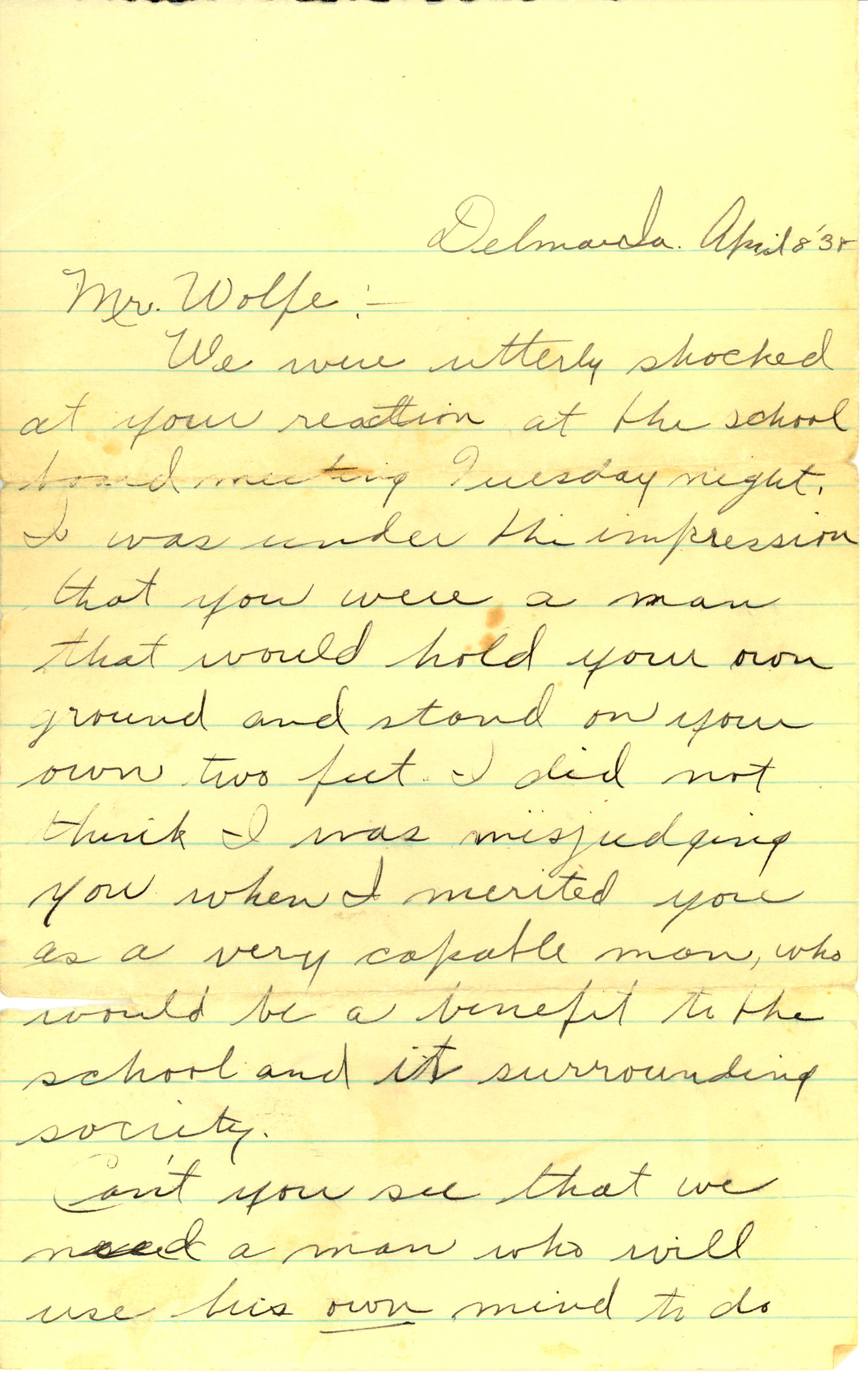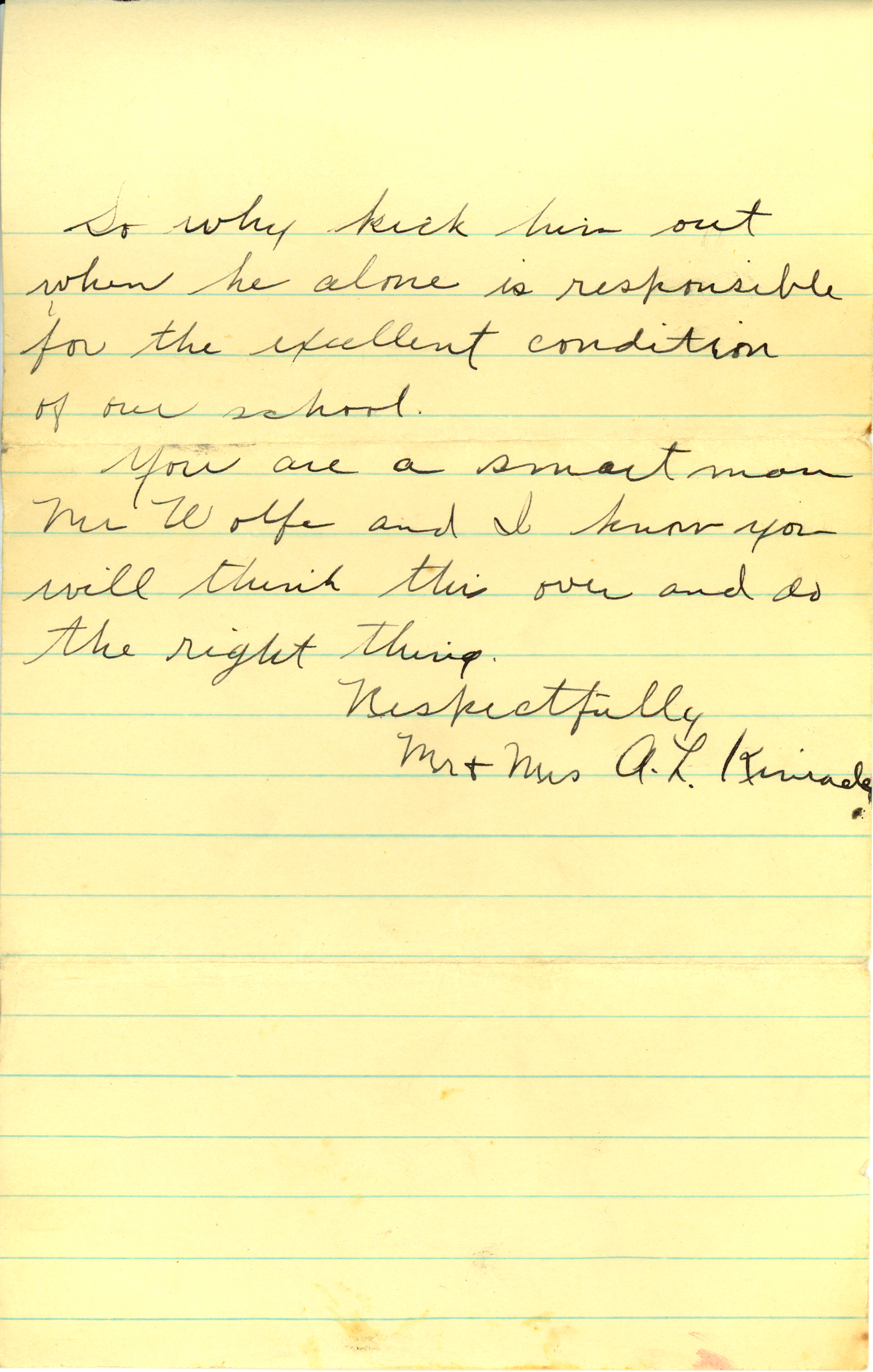An e-mail from Tom Wolfe to one of his nieces, providing history and recollections of his family, especially his mother:
October 15, 2007
Dear Mary,
I’ve been meaning to respond to your note from way back when for a long time now, but I’ve found it hard to do—largely, I think, because it’s hard to write about Mom, and I never knew Dad. I’ll give it a try though.
In case you’re not aware, the founders of our Wolfe family in America were John R. and Honora Buckle[y] Wolfe. She was reportedly from Belfast, making theirs a most unusual union in those days. They probably arrived in the U.S. from Listowel, County Kerry, Ireland in 1846, perhaps traveling through Canada, though I don’t know for sure. John R. came from relative wealth, so it’s not clear just why he and his family emigrated. It was, of course, during the Potato Famine, and leaving was the thing to do then. They arrived with three or four of their eventual ten children. John R. worked across the country on the railroads and Hennepin Canal before settling in Lost Nation in 1854 where he took up farming with other Wolfes who apparently accompanied him on the trek. Their fifth child, my grandfather Maurice (pronounced “Morris” by many Irishmen), was the first of that family to be born there.
Maurice married Sarah McAndrew (s?) sometime or other and promptly had five sons: Ray (my father, born in 1896), Phil (no children), John (two children, Jack being a good friend), Melvin (five children and Cousin David’s dad), and Jimmy (five children). Uncle Dan McGinn always claimed that Grandfather Maurice was once a Texas Ranger, but I don’t believe it. He also alleged that he was an excellent shot with a 45 caliber revolver, a gun that is very heavy and difficult to shoot accurately. What he did do was farm, and that’s where his five sons were raised. Sarah died first, sometime in the early to mid twenties, and Maurice died toward the end of that decade.
Mom’s paternal ancestor was Peter McGinn, who was discharged from the British army somewhere in Canada (rather than Ireland) sometime after the Napoleonic Wars ended (1815). I don’t know whom he married, but they had ten children together and eventually moved to Petersville, Iowa around 1830 to join some of their children and probably to escape the much colder winters up north. The remarkable thing about that is that he must have been around seventy or so when they moved, and there were no planes or trains to take them. They probably walked or went by canoe the whole distance!!! One of Peter’s grandsons was John McGinn who married Kathrine Spain, and they had twelve children, the eleventh being Gladys, my mother (born in 1903).
The old McGinn homestead south of Delmar and not far from Petersville is a huge place and was truly an awesome house for me to visit as a child. The first floor had a kitchen (with a servants’ staircase off it) and several rooms—parlors, sitting rooms, dining room, and formal living room. The upstairs had an enormous number of bedrooms. I counted them all when I was young but don’t remember the exact number. There may have been as many as twelve. When Pete McGinn married Peggy Troy, she immediately had the entire interior refurbished. Interior walls were removed throughout the house, and the number of rooms everywhere was sharply reduced. There was also an old fashioned, walkup attic with hordes of antiques stored there. The only thing I can remember for certain after all these years is an old, windup victrola. The old house was truly remarkable.
The original John McGinn farm was really big, so much so that he gave farms to many of his sons, and Uncle Pete inherited the home place. I don’t think the daughters received anything, but maybe they received some money. I doubt it though. Women were expected to marry or go into the convent. Three did the former and two the latter. Presumably, Grandfather John was pleased.
I don’t know too much about Mom as a girl. The dictum in those days and one, incidentally, that I would like to see resurrected, was that children should be seen (occasionally) but not heard. Accordingly, when company came, the kids would be sent upstairs out of the way while the adults often sat in the kitchen talking about the most interesting topics of that or any other day—other people. During these conversations, Mom and the other kids would huddle at the bottom of the servants’ stairs off the kitchen and listen through the closed door.
Mom always liked to dance, so she and some of the others would sometimes attend them in DeWitt using various conveyances. During the winter, they might take a horse and buggy with a sleigh on it, and in the warmer weather they might ride those railroad hand carts. They lived, you see, close to a railroad track which ran to DeWitt.
When Congress declared war on Germany in April, 1917, Dad was twenty and Mom fourteen and hadn’t met yet. He entered the Navy the next year but was fortunate not to be sent overseas, spending his war tending the animals at Great Lakes Naval Base. While there, he contracted the Spanish Flu pandemic which killed 50 to 100 million people, far more than died from combat. Fortunately, he recovered and was discharged early in 1919.
My parents first met, I believe, at a dance in DeWitt. According to my Uncle Dan McGinn, one of Mom’s older brothers and a man who loved to talk but was not above embellishing a story if it pleased him, Dad would ride his horse to Petersville to see Mom, sometimes taking shortcuts through fields by cutting the fence wires (a detail I really find hard to accept). In those days, it wasn’t all that easy to get around. Henry Ford’s Model T was popular, but the roads were terrible, a family would have only one car, and the car would often be jacked up with the tires removed during the long winter months. That’s why Dad probably did ride his horse to see her, but I don’t know about that wire cutting story.
They married in 1925 when Dad was twenty-eight or twenty-nine and Mom was twenty-two. They began farming in Lost Nation but lost it within a few years. They turned to the McGinns for help and were invited to stay in a house (no longer present) near the corner of the Delmar road and the road to the McGinn home. I don’t know if Dad helped the McGinns farm or whether he rented land elsewhere, but I’m guessing the latter. Sometime in the early thirties, they bought the land near Delmar that came to be my home. In 1926 Sara appeared, three years later it was Mary K.’s turn, followed by Margie in 1938, and I in 1940. The setting was complete.
Most of what I’ve learned about my dad has been through Mom and Sara, and to a lesser extent, Mary K. Dad apparently had a very strong personality, was well liked, and was active in the church and community. I know, for example, that he was on the public school board at a time when Sara and Mary Kay were both attending the parochial school in Delmar! (Somewhere in Mary K.’s stash of memorabilia there is a letter to Dad from a man named Harrington suggesting that Dad’s position on the public school board while his kids attended private school was somewhat of a conflict of interest. At that time Delmar had a parochial high school which Sara and Mary K. attended, and they always defended Dad in that one, but I agree with Mr. Harrington.) Incidentally, one thing Sara remembered the most from that school was walking down a row of desks and having the boys pinch her as she walked!
Dad loved horses, always had several around the farm, and went to Montana often to shop for horses. Somewhere there is a photo of him in full cowboy garb that I always thought was real, and I didn’t learn until I was an adult that it was merely one of those photos where you stick your head above the cardboard cutout of the cowboy! I was never a bright child.
The presence of all those horses on the farm gave Sara and Mary K. an opportunity to become skilled equestrians. Even Margie was pretty good, certainly better than I. A few years ago I made the mistake of observing to Mary K. that I thought the presence of those horses at that time meant that the skill level was based on age, with Sara being the best and I the worst. Your mother looked at me for a moment and then suggested quietly, but with some passion, that she believed herself to be a better equestrian that Sara. I dropped the subject quickly.
Ed Lassen once told me a story about my parents that I found interesting. Mom must have been looking out a house window and saw Dad doing something to a horse that disturbed her, so she came storming out of the house and really ripped into him in the presence of Ed, a young hired man. I mention that because Mom once told me that she was a very quiet presence until Dad died and she had to remake herself just to survive in this big, bad world.
According to Mary K. or maybe Margie, Sara was very close to Dad. At any rate, she was fifteen and a junior in high school when Dad died—just shy of his forty-fifth birthday. Mom enrolled her in Mt. St. Clare College in Clinton for her last two years, so Sara was away from home and without a father. That must have been a very tough time indeed for her. Mary K. was not quite twelve at the time of his death and probably didn’t become impossible for a year or two. Margie was just turning three when Dad died, and I was a mere nine months old.
Because I was so young, I really don’t know what happened to the rest of the family immediately after Dad’s death. I only know that I was sent to Lost Nation to stay with Uncle Melvin and Aunt Frances Wolfe, Cousin David’s parents. I stayed there a few weeks, and during that time I believe Aunt Frances potty trained me or at least tried. She was famous for doing that with her grandchildren, and I think that’s what she did with me.
The farm needed attending after Dad’s death, and Uncle Ed McGinn, a bachelor brother three years older than Mom and living, I believe, in the small town of Manning in western Iowa, came to the rescue. He ran the farm and lived with us for about seven to ten years. Ray Schmidt from across the road then rented the farm until Ed Lassen took over in 1952, after his return from a stint in the Korean War. He rented it for ten years while living in his house in town. Our neighbor, Ray Schmidt, resumed renting after that. Mom was diagnosed with cancer in 1962–63 and had to abandon the farm for various places in Davenport.
It is difficult to describe Mom very accurately. She had no physical or personality traits that set her apart from the crowd. She was quiet but tough. As I mentioned earlier, she forced herself to be tough after Dad’s death. She was not very strict as a mother though. She seldom raised her voice, and it worked fairly well with the girls, I think. None of them was particularly evil and gave her no particular heartache. They all had lots of dates, and she seemed to trust them. Margie, for example, would catch rides to the Fairyland dances near DeWitt every Sunday night in good weather and ride home with someone else. Afterwards, I’d hear her go to Mom’s bedroom and tell her all that transpired.
I was much harder for her though. I was more likely to give her grief, but she quietly tried to steer me in the right directions. I regret that I didn’t make it easier for her. She did have a way to get my attention though. When she really wanted me to obey her, she would use the Dad card. As I began to pressure her to drive before I could get a license, for example, she gave me almost a “Win one for the Gipper” speech. “The last words your father said to me before he died,” she told me with a straight face, were, ‘Be sure not to let our son drive before he gets his license.’” I bought that line. I’m not sure if I really believed her, but I know that she felt pretty strongly about it; and as I’ve said before, I was never a bright child.
Mom was diagnosed with cancer while still on the farm and lived for about three years after leaving it. She and I lived together for awhile, and she lived in a couple more places alone; but most of the time she was having various surgeries at the U. of I. hospital in Iowa City or undergoing chemo and radiation treatments in Davenport. In August of 1965, she entered Mercy in Davenport and never left, dying in bed on March 8, 1966. There were three days and nights of wakes plus the funeral. Afterwards, my sisters and I were totally exhausted, but we did manage to talk a great deal about Mom and Dad, conversations dominated by Sara and Mary K.
Mom’s influence on me has been enormous. So many things I do are a direct result of her injunctions. For example, she always said to visit the elderly and the sick, and to bury the dead; thus, I try to visit sick friends often and attend wakes and funerals as well. She believed that the really good parking places in front of church or elsewhere should be reserved for the elderly and/or infirm, so I usually pass them by in favor of more distant spots. The hardest thing for me to do, however, is to remain patient and civil when I’m around people who drive me nuts. I keep reminding myself that Mom would not want me to be rude, so I try to follow her advice. Sometimes it even works. I miss her all the time.
Your revered ancestor,
Tom Wolfe
[July 5, 2013]
images: Saint Patrick’s Cemetery, Route 136, Delmar, Iowa; Route 136, east of Delmar; east of Delmar, September 2011 (all Google Maps Street View)

